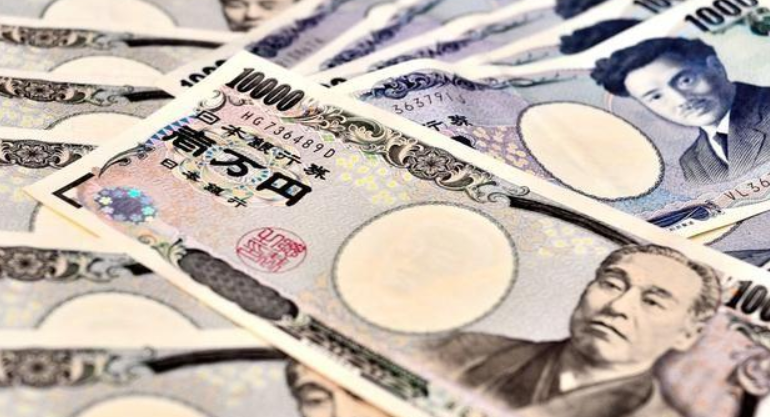Japan Must Cut Deficit to Restore Fiscal Stability
Advertisements
The International Monetary Fund (IMF) has raised alarm bells about Japan's fiscal health, emphasizing the pressing need for immediate reforms in the face of escalating natural disaster risks and surging social security costs. In a recent interview in Tokyo, Nada Choueiri, the IMF's representative for Japan, articulated a stark warning: “Japan currently has limited space to cope with shocks.” This statement reflects the growing concern over Japan's ability to navigate its fiscal challenges without adding to its already ballooning deficit.
As the nation finds itself compelled to increase expenditures—addressing a diverse range of demands from bolstering national defense to enhancing birth rates—there is a parallel trend of rising financing costs due to interest rate hikes implemented by the Bank of Japan last year. The burden of public debt in Japan is the highest among developed nations, a reality that weighs heavily on the country’s financial strategies.
The IMF's latest report highlights the significant political pressures faced by Prime Minister Shigeru Ishiba's minority government, stating that the risks of further expanding the deficit “are large.” It ominously predicts that Japan's primary deficit will slightly widen to 2.2% of GDP by 2025, up from 2.1% last year. Choueiri asserted, “While there is a slight deterioration, it is still the wrong direction. The deficit must chart a decreasing trajectory in the medium term to assure the sustainability of fiscal accounts.”
Piling on the pressure, Japan's Ministry of Finance recently estimated that, assuming an annual economic growth rate of 3% and an inflation rate of 2%, the costs related to debt repayment will rise by 25% by fiscal 2028. The IMF predicts that this year, Japan's public debt will escalate to a staggering 232.7% of GDP, underscoring the urgency of fiscal reform.

Choueiri emphasizes the importance of preparing for rising interest rates, warning that it would be unwise for Japan to face negative surprises four or five years down the line. She advocates for a gradual approach to increasing interest rates, suggesting it could mitigate present risks while allowing the economy to adjust.
At the same time, the weakening of the ruling minority government's position has emboldened opposition parties to push for greater expenditures on various policy fronts. Ongoing debates in the National Diet include proposals to raise the threshold for tax-free income, reflecting a broader conversation about fiscal priorities and budget allocations.
At a press conference, Gita Gopinath, the IMF's First Deputy Managing Director, stressed the necessity for Japan to initiate fiscal consolidation immediately. “The Diet is engaged in close negotiations, and we will watch the actual measures that emerge. But we strongly recommend that Japan begin fiscal tightening now; it’s absolutely vital,” she emphasized.
The Japanese government recently passed an additional budget of 13.9 trillion yen (approximately $91.3 billion) to fund the latest economic stimulus efforts while also approving a record initial budget of 115.5 trillion yen for the upcoming fiscal year starting in April. Gopinath underscored that the outcomes of the Diet discussions should signal the commencement of a consolidation process in Japan's fiscal landscape.
Concerning monetary policy, Choueiri expressed support for the Bank of Japan's gradual approach to normalizing interest rates and highlighted the importance of flexibility and data dependency in making such adjustments. The IMF anticipates that rates will gradually increase to a neutral level of about 1.5% by the end of 2027.
Last month, the Bank of Japan executed its third interest rate hike since March 2024, setting the policy rate at 0.5%, the highest point since 2008. BoJ Governor Kazuo Ueda, during the press conference following the decision, hinted at the possibility of further hikes while noting that there remains a distance to go before hitting the neutral rate.
The IMF report also noted emerging signs suggesting that Japan’s economy is beginning to seek a new equilibrium after three decades of near-zero inflation. Choueiri expressed growing confidence that Japan can achieve stable inflation in the medium term, citing recent indicators of enhanced inflation expectations, rising consumer spending, and demand-driven price pressures. “These are all signs of recovery that make us confident that we are on the path toward a sustainable 2% inflation target,” she remarked.
However, concerning global uncertainties, Choueiri warned that the BoJ should proceed with caution and adaptability regarding the scale and timing of interest rate hikes. A pivotal issue remains regarding moves by the U.S. President to enforce a series of tariffs, which could adversely affect global trade dynamics. Thus far, there have been no indications from the U.S. regarding potential tariff actions against Japan ahead of Prime Minister Ishiba’s first meeting with the U.S. President later on Friday.
“We will continue to monitor these announcements closely,” Choueiri stated. “Given Japan’s deep integration with the global economy, we need to understand how any such developments could impact its financial landscape.”
Leave A Reply